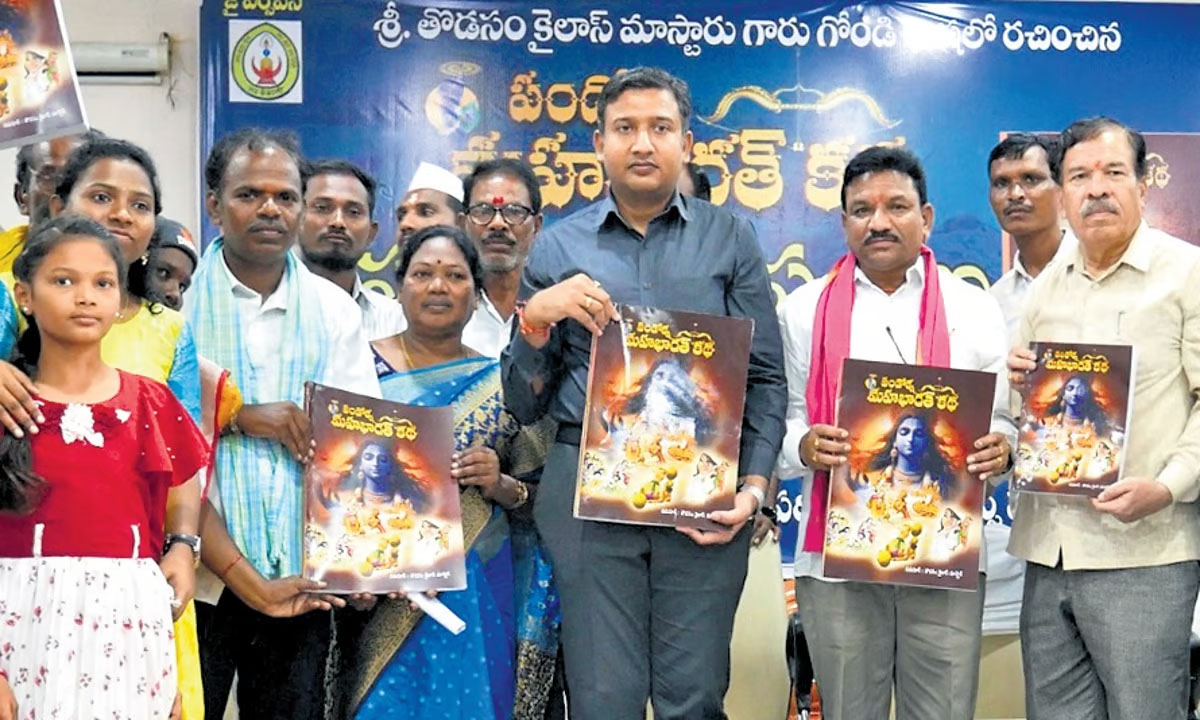ADILABAD : For the first time, the Mahabharat has been translated from Telugu into the Gondi language, making it accessible for Adivasi tribes. The book, titled “Pandak Na Mahabharat Katha,” was written by Thodasam Kailash, a government teacher, who completed the translation within three months.
The book was released at the Zilla Parishad meeting hall by district collector Rajarshi Shah. Former Vice President M Venkaiah Naidu, praised Kailash’s work on X (formerly Twitter), highlighting the significance of translating the book into native languages for future generations.
Speaking to TNIE, Kailash shared his inspiration for writing the book. He said that he was motivated by Indian cricketer Virat Kohli’s dedication to his sport despite personal loss. Kailash said that he developed a keen interest in the Mahabharat and Ramayan during his childhood, taking part in dramas in his native village of Wagapur and watching these epics televised on Doordarshan.
Kailash said that he was initially apprehensive about undertaking such a major project, especially concerning the availability of necessary words in the Gondi language. However, he attributed the successful completion of the book to divine grace, his teachers’ blessings, and his parents’ support. He began writing on March 10 and finished by June 10, 2024.
Despite personal challenges, including his wife Umadevi’s battle with cancer, Kailash said that he was determined to print and share his work. He typed the entire book on his mobile phone, taking advantage of modern technology. He hopes to translate the book into Marathi and Hindi scripts in the future.
Kailash had earlier authored “Kandirung Vesuding” (children’s story), incorporating many endangered words from the Gondi language. He said that his aim was to have the Gondi language included in the Eighth Schedule of the Constitution, which would require a significant collection of Gondi words. Kailash said that he believes his work contributes to this effort and could lead to employment opportunities for tribal youth.
